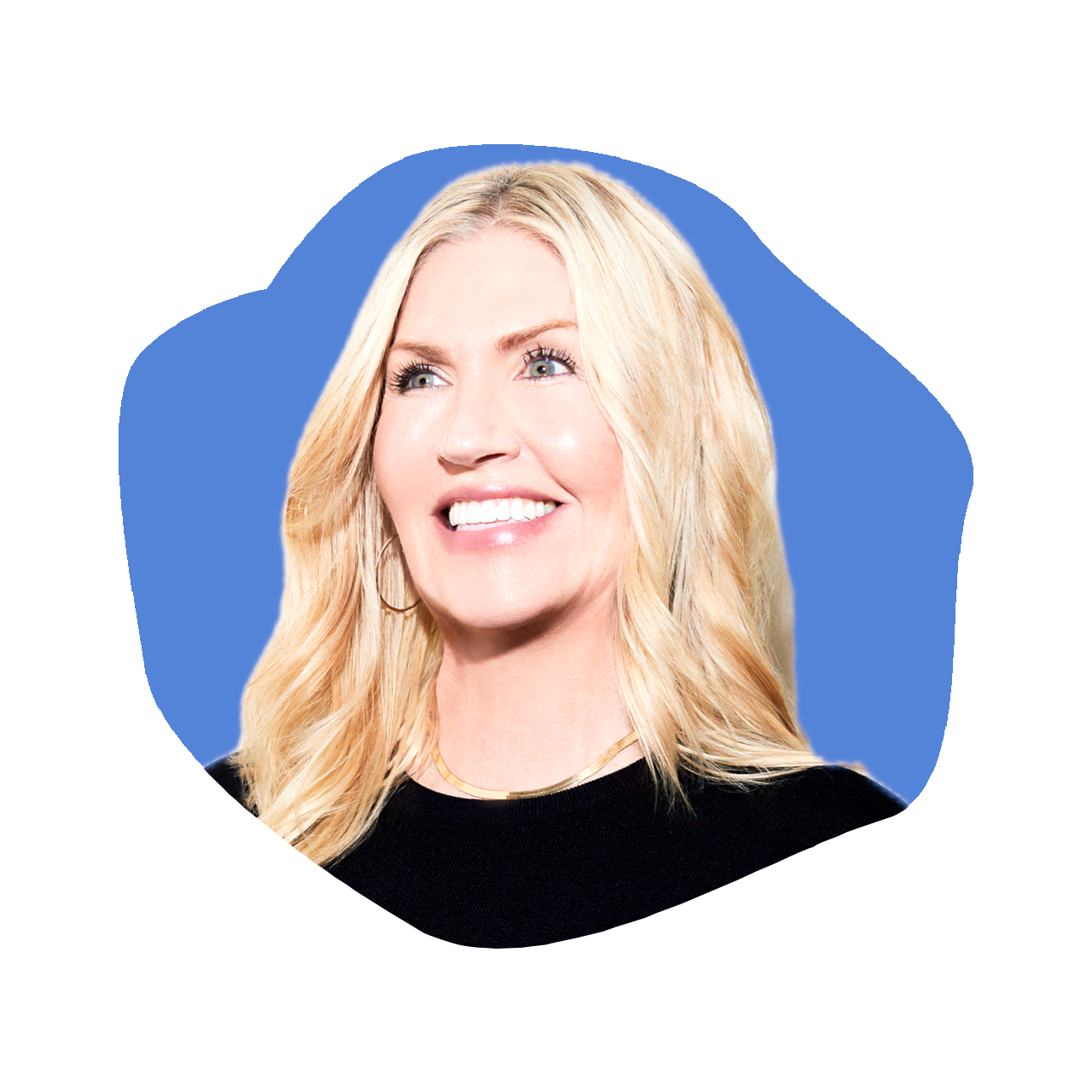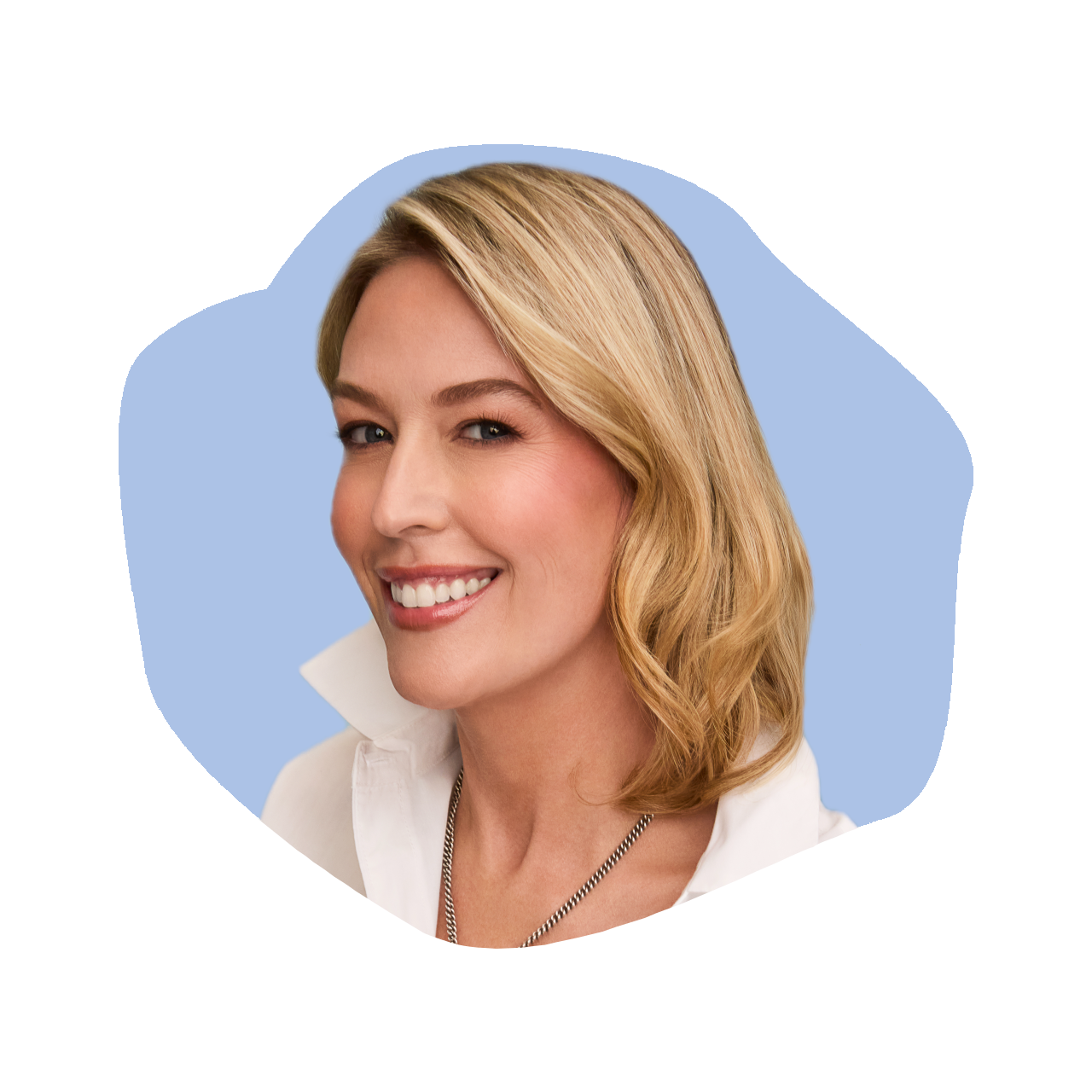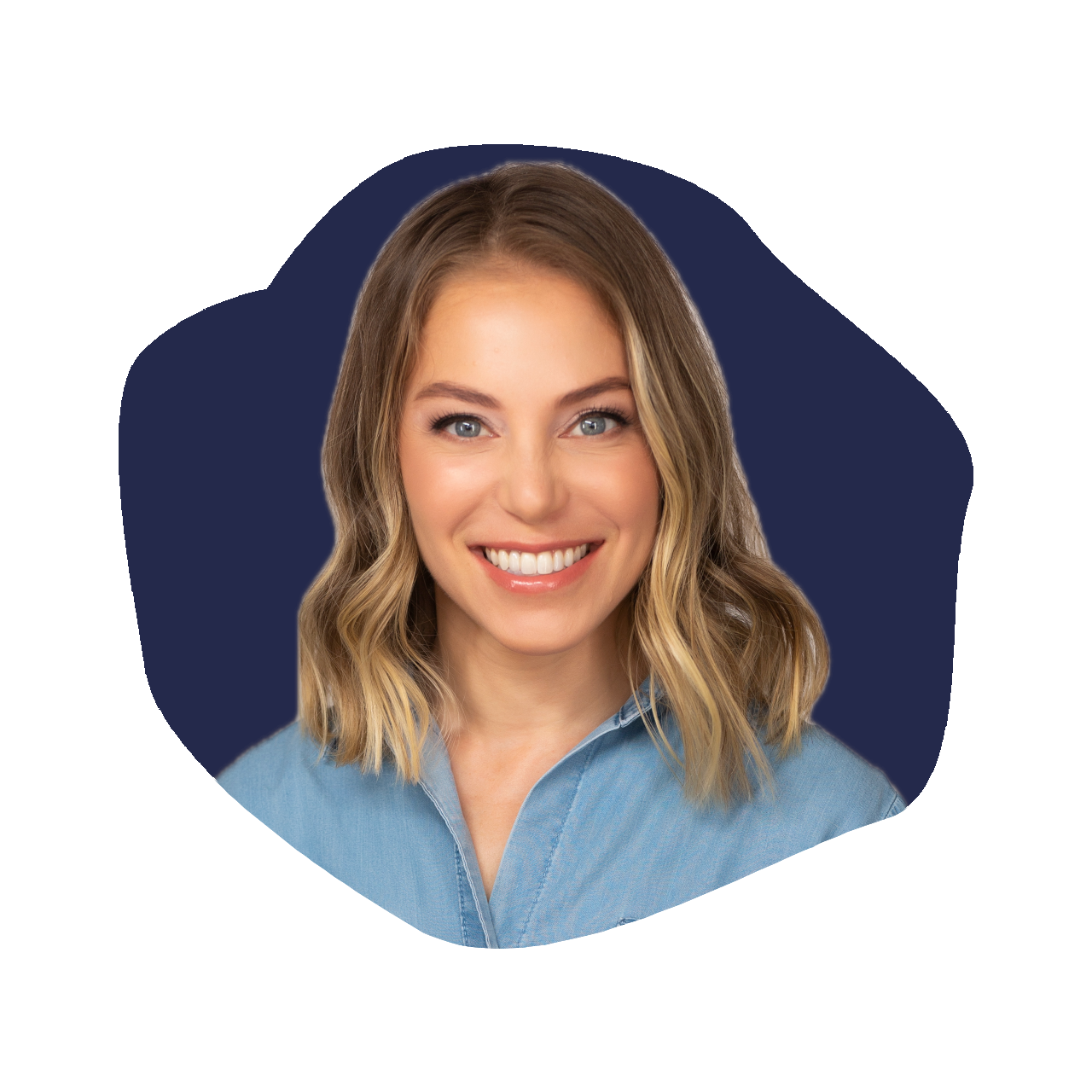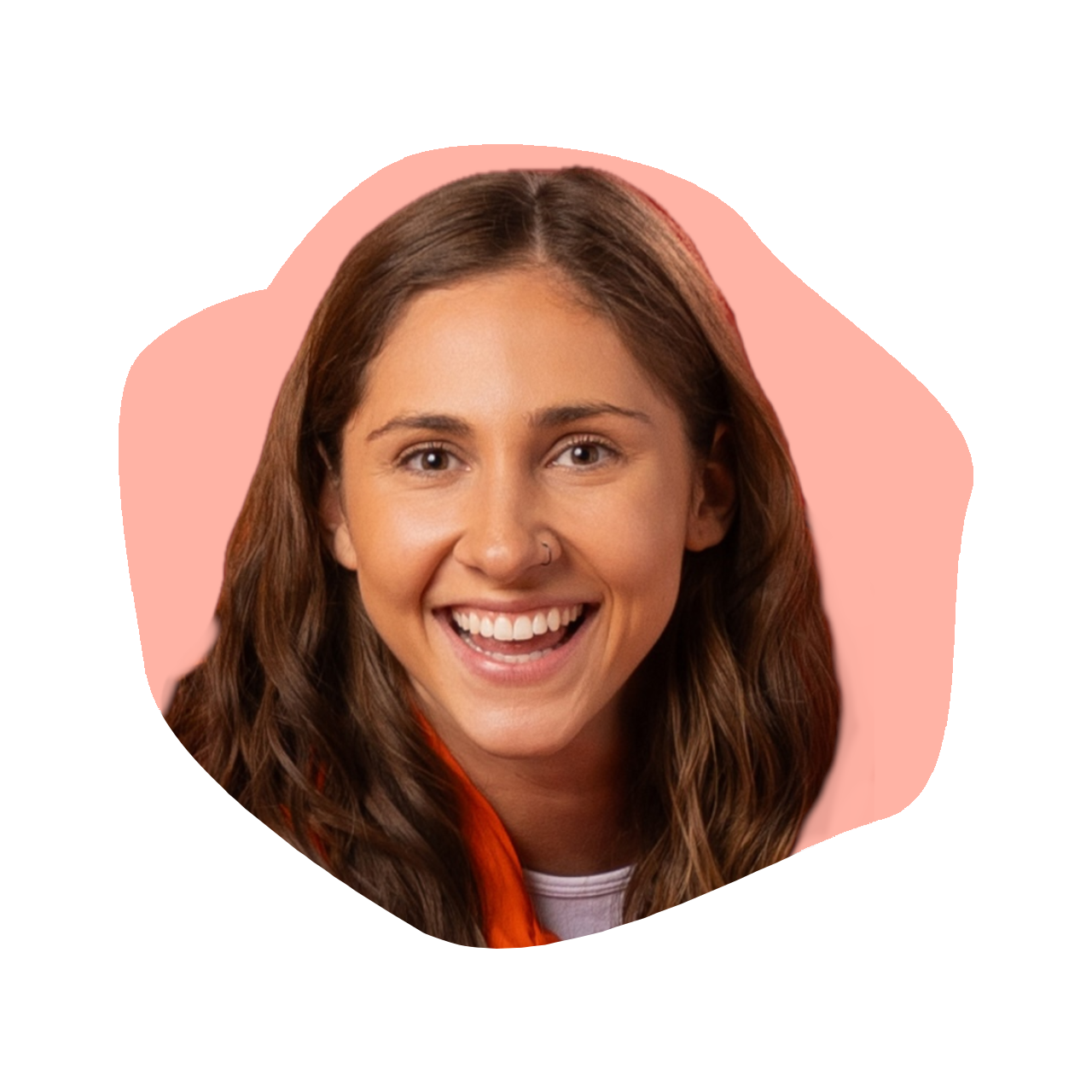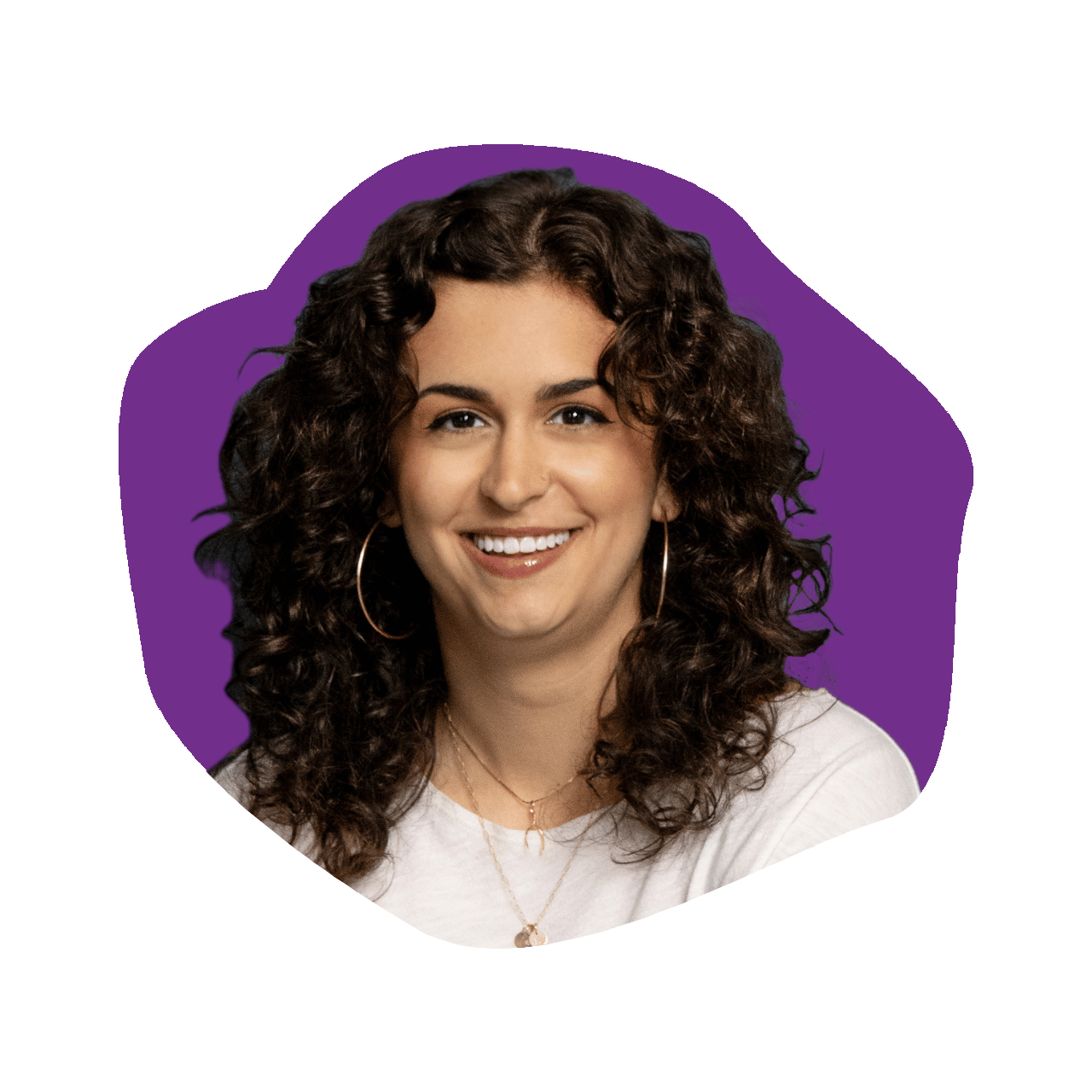Interview Replay: Kara On The Art of Entrepreneurship
Episode 436.5

In this episode our topic is one that you’ll definitely grapple with throughout the process of starting and building a company: overcoming doubt. Not only do we experience doubt from other people, but you have to deal with your own internal doubt as well.
I’m joined by Kara Goldin, founder and CEO of Hint, Inc., best known for its award-winning Hint® water. Kara is also an author who literally wrote the book on overcoming doubt, Undaunted: Overcoming Doubts and Doubters.
In this episode, Kara and I discuss her journey as an “accidental entrepreneur” and how she went from having zero experience in the beverage industry to building a $150 million company. Make sure you tune in for her insights on overcoming imposter syndrome and learning from setbacks.
Resources from
this episode:
Enjoying this episode of #TheKaraGoldinShow? Let Kara know by clicking on the links below and sending her a quick shout-out on social!
Follow Kara on LinkedIn – Instagram – X – Facebook – TikTok – YouTube – Threads
Have a question for Kara about one of our episodes? Reach out to Kara directly at [email protected]
To learn more about the The Art of Entrepreneurship Podcast:
https://www.jackiehermes.com/podcast
https://www.jackiehermes.com/podcast/overcome-doubts-with-kara-goldin
Transcript
Kara Goldin 0:00
I am unwilling to give up that I will start over from scratch as many times as it takes to get where I want to be I want to be, you just want to make sure you will get knocked down but just make sure you don’t get knocked down knocked out. So your only choice should be go focus on what you can control control control. Hi, everyone and welcome to the Kara Goldin show. Join me each week for inspiring conversations with some of the world’s greatest leaders. We’ll talk with founders, entrepreneurs, CEOs, and really some of the most interesting people of our time. Can’t wait to get started. Let’s go. Let’s go. Today’s episode is a bonus episode. I hope you enjoy it. And please make sure to tune in Monday for a brand new episode of Kara Goldin show. Enjoy.
Jackie Hermes 0:53
Building a company from nothing is freaking hard. US entrepreneurs are expected to deal with unimaginable challenges and somehow keep a cool head through it all. This is the art of entrepreneurship. And I’m your host Jackie Hermus. I grew my company Excel it from zero to seven figures with no partners and no funding. The art of entrepreneurship is a show where we cut through the BS and dig into what it actually takes to start and grow a company. If you give me your time, I promise it won’t be wasted. Now let’s get to work. Welcome back to The Art of entrepreneurship. Today’s topic is an important one that you will definitely grapple with throughout the entire process of starting and building a company overcoming doubt. Not only do we experienced out from other people, when I started as an entrepreneur, people were skeptical, to say the least. But you have to deal with your own internal doubt as well. Questions like Am I really cut out for this? How am I going to survive this season, I still ask myself that all the time. And a lot more come up for me even 10 years into entrepreneurship. There is no better person to be here with me today to discuss this topic than Kara Goldin who literally wrote the book on overcoming doubt and doubters called undaunted. Be sure to check it out. Thank you so much for being here with me today, Kara?
Kara Goldin 2:14
Absolutely. Thanks for inviting me.
Jackie Hermes 2:17
Yes. So I want to start out i Well, I went through a lot of your website, but I love the story that you share. And it’s similar to a lot of the founders that I’ve met before where the they experience a problem, either a personal problem or a problem at work, and they come up with some kind of solution. And then they wonder, hmm, you know, like, it seems like other people should be able to use this or this would benefit other people. And they go through that process of kind of commercializing it, which seems like it’s what you did, not to oversimplify it. But in the process of overcoming a soda addiction, you found a way to drink more water and you started hint, while pregnant with your fourth child, which is crazy. I love your husband’s reaction in in your book, like, Oh, you’re just going to do this. I thought that was really cool. Tell me about the early years where you didn’t have the experience in the beverage industry and how you went about figuring out how to how to do things like packaging and production and just like getting the company off the ground.
Kara Goldin 3:21
So you know, it’s funny, because first of all, when I wrote my book, I wrote it because it was really my journal. So I had been journaling because people would say, oh, my gosh, like you can’t make this stuff up. Right? Like all the crazy that went along along the way. And some of those days were, you know, really hard, right? I mean, weren’t. You don’t have to be beverage entrepreneur to sort of have hard days. And but I kept thinking, let me just write out the story really quick. And, and that was my journal with like, 600 pages. And after a while a friend said, you should really put all of this into some sort of format, like a book where you can help a lot of people I’m like, Wow, what a great idea. That would be great. But But yeah, I mean, I think a lot of it stems from the journey before starting hints. So I had never been an entrepreneur, but I had worked for entrepreneurs, and I never really thought that I would become an entrepreneur necessarily. But I really enjoyed the idea of building and learning along the way and doing the crazy stuff that everyone said wasn’t possible. And so that was you know, initially my second job out of college was at CNN and so I was able to see you know, Ted Turner run around the office and and in New York and talk about the world needs news, and it doesn’t matter that they don’t speak English and every country they should know What’s going on in the world and, and he believed it. And he believed he could go and compete with national network news. Now, there were many people that didn’t, there were, we were only in 40% of the country. But watching somebody like that really lead a team to believe that one day, it’s going to be possible and showing the growth was very, very exciting. And then when I came out to Silicon Valley, I worked for a little spin out of Apple, a Steve Jobs idea that he doesn’t get a lot of credit for, which was the early days of direct consumer. And the, we basically put catalogs out of debts. And so that that was the early days of online shopping. And, again, nobody really knew how to do it, I didn’t particularly even know how it worked. I mean, basically, we were inserting a disk into a machine. And somehow the machine was magically like reading the images. And it was, I mean, it was crazy. But I was able to kind of do the front end of that product and help to build that. And again, we didn’t know we didn’t have the pricing, we didn’t really understand what we were doing. But we were kind of making it up as we went along. And I thought it was, you know, funny. And when I’d run into people and say, Oh, my gosh, you worked for to market. That’s amazing. And I love that energy, where a lot of people knew about the products that I was working on initially. But then over time, more and more people knew about it, and I loved I wouldn’t say I’m a particularly patient person, I but yet, but yet, when I look back, you have to have patience in order, you know, to build something that hasn’t been done before. So we were acquired to market was acquired by a company called America Online. And America Online was not the number one and the online services category. At the time, they were like, number three, but by the time I left there, it was number one. We were in for shopping and you know, people were chatting on America Online and and fighting with their brother, if they picked up the phone and disconnected, you know, their phone line or whatever. I mean, it was just crazy watching all the first that happened there. So I guess when I decided to launch hint, when I was pregnant with my fourth child, Justin, I thought, this is something that I don’t know anything about. I had learned a lot about tech. It’s funny, because we got a ton of press on hints initially, and actually, for the last 17 years, but the big story that everyone wanted to write about, and interviewed me for was the fact that I left tap the fact that I was you know, a vice president, I was one of the youngest vice presidents of America Online and one of the few women at that level. And but so people like said, Why are you getting off the training? Why are you leaving to go to another industry? Did you hate tack was I mean, there were days when I had, you know, my moments, but I actually loved the build. And when I saw this new idea that I have this new category called unsweetened flavored water that I couldn’t go and build, I thought not only is that exciting to me and sort of taps into my curiosity, but I have solve for a problem around health that I think I can help a lot of other people with. So that was, you know, a long winded answer to sort of say why I think I was undaunted enough because of the other people that I had worked for. But again, when you’re in it, you don’t necessarily see it. Afterwards, you start your journey. Good, bad and awful, right is it is what makes you who you are. And that’s something that I try and get across on my podcast and all my posts. And in my book today, because I think it’s a really important thing for people to recognize you’re never wasting your time. You’re just building up different ideas, your curiosity, your relentlessness. And, and figuring out how to move forward.
Jackie Hermes 9:39
You touched on two things that I talk about all the time, which is one, how much it matters who you surround yourself with. And it’s funny that you say you didn’t even totally realize what you were learning, right? Because you were working for these people that were just like, well, I guess we’re gonna go and figure this out. Right? It wasn’t like here is the playbook and here’s how you get The next step, it was like cool, we all know nothing. Let’s go and figure it out. And even if you weren’t sitting there taking notes that was ingrained into your mind, and I feel like that’s what happens to a lot of us when we hang out with people that are, you know, they’re just like comfortable where they are, and they don’t want to do anything else. And that’s okay. But if that’s not where you want to be, and that’s not for you, then you have to be around people that are reaching for that next thing, or have that figured out mentality, on that figured out mentality, I think that makes people really uncomfortable to be in a place where, you know, you feel like an imposter. And I talk about impostor syndrome all the time. How do you get over that idea of, you know, like, I don’t know how we’re going to do this. But we’re going to do this. And let’s go, Oh, is that just like a mentality that you have or something that you developed?
Kara Goldin 10:50
Well, I think having a goal is always really important. But I sort of have this visual that I think I started actually, when I was a kid, when I was an athlete, where I’ll have a goal of this is where I want to go, I don’t necessarily even talk about it. I mean, maybe I share it with my team today. But this is kind of where we’re headed. But more than anything, in order to get there, you have to figure out what the steps are. And you have to figure out how you can continue to make progress. And you have to look back on those steps and how far you’ve come as well. Because I think so often, we we don’t get started. Because we fear that it’s just going to be really hard, right? And so one of the stories I talked about, or one of the chapters in the book is kind of facing my fears. And I was I’m still to this day, very afraid of heights. And a lot of people know that about me. I mean, we’re not in sort of situations where I’m in that every single day, but anybody who is like, they’ll be like, Hey, do you want to, you know, go heliskiing? I’m like, No way. I’m not even interested in having that conversation, right? And so I think there’s just a, there’s, there’s just this idea that the more times you go and figure out how do you get to solve that problem, then you become that much more confident in yourself, like I can do something. It’s interesting. One of the things that I really learned in, you know, mostly tech, but also in media working at CNN as well is that when there’s a big idea out there, maybe you call them visionary founders, like they’ve got this idea for something that’s going to happen. 99% of people will take the easy route and say, You can’t do that. That’s impossible. And my natural response will be like, why not? And most the time people don’t know why not by and so in tack, growing up around a group of people in tech, I mean, it’s interesting, we would have competition like at America Online, we would talk about Microsoft, and we would talk about some of the stuff that they’re working on. And we would have friends at Microsoft, they wouldn’t give away trade secrets or anything like that. We would admire them from afar. Like, that’s really cool. I wonder when that will get done. You know, and we’d be jealous, right? That that kind of stuff was working. But again, it keeps your curiosity up. And it gives you sort of this idea, like how can we go do something that’s better in some way? And yet, like when I walked into the beverage industry instead, it was that’s impossible. You can’t do that. You’ve worked in tech. I mean, they would say, What did you do before you decided to start hand tonight said I was at America Online. I wasn’t even like throwing titles around or anything. I just, it’s like, they’re like, Oh, we didn’t know what they had a beverage. And I’m like, we didn’t know. But again, I think it’s it’s the story of, you know, the underdogs. It’s the story of the people that enjoy the build that are okay with going slow. Right? They don’t have those of the people that are the scariest, right, the and that’s what I’ve learned over time. It’s the people that no one expects that they’re actually going to win. Yeah. Right. And then they did, right. And I always saw that. I think growing up in athletics, right. It’s just it’s the people that actually maybe have one thing and it going for them and no one’s watching. That are whether I ran track as well. Those were always the people. Right, and that you had to just watch out for that they you know, and I think to some extent, the people that are more experienced the people that have that are expected to win. There’s a lot of pressure. And so that was the thing that I had realized just from my journey, that just because we weren’t Coke and Pepsi, you know, everybody in the industry expected us to lose. But if Dad, I said, you know, we might, we might lose. I mean, I had a number of trade people who would walk up to me trade press in the early days of Hant, at the trade shows, and they’re like, You seem like a nice lady. You know, you seem like an iris. Okay, it’s all good. And yet people, you know, friends of mine who had worked with me, they said, You’re the person that they need to, you’re the undaunted one, you’re the one that no one’s expecting, you know, and, and again, I think just having that journey myself, and being able to enjoy and appreciate life every day, and everything that I’d have been privileged to be able to do and have and not take yourself. So seriously, are all really important points that I would love to share with people.
Jackie Hermes 16:14
People love to doubt. And I think people can doubt you for any number of reasons. People have asked me over and over again, oh, this is your company, like, what do I not look like? I started it like, what about this conversation, you know, makes you think that it couldn’t be my company? It’s just, it’s all in those little, like, little hints in conversations where you hear stuff like that, and you’re like, Huh, well, I’m gonna go out and do even better, I see it as a challenge as well. So I loved that you said that, I’m hearing a little bit in the things that you’re saying. Maybe some hints of like overcoming impostor syndrome, like and in, in, in the practice is only how, you know, like, you have to see the challenge and go and do to try to overcome it. And then you see the next challenge. I recently talked about that on a podcast. Do you feel impostor syndrome?
Kara Goldin 17:06
You know, I think everybody does, to some extent, but I think what I’ve learned over time, and maybe it’s just, once you have enough experiences with it, what I’ve learned over time, is that you have a choice, right? You can actually admire people or who are doing things that maybe you’re a little jealous of maybe, you know, you never really know the full story. And I think over time, that’s what more people need to appreciate. Right? And it’s, it’s, I think that when you’re in the number one slot, when you will have a lot of people who are, you know, gunning for you, right, like I said, it’s, it’s a, it’s a tough spot to be in, right, whether you’re a brand that’s in that spot, or whether you know, you’re an individual. And again, you never really fully know, the full story. And I think by kind of learn that over, over time, and it’s way better to sort of fly under the radar and, and to be able to, you know, continue to do what you’re doing every day and and not be in a rush to do it either. I think that’s another piece of it. So I think it’s, it’s a, it’s much healthier.
Jackie Hermes 18:24
Yeah, absolutely. Well, we are running out of time, I just have one more question for you. A lot of the listeners of this podcast are people that are either thinking about building a company or building a business themselves, and like, really, in the day to day of it, and the ups and downs and gosh, I mean, I’m there too. If you had one piece of advice for those people, what would it be?
Kara Goldin 18:49
I think the key thing is there’s a lot of pressure amongst people, uh, to, especially college kids today to go and be an entrepreneur, it sounds like incredibly great, sexy, all this stuff. And it’s really hard. I mean, there are way easier ways to make money. And what I always tell people unless you have an idea that you believe you can actually scale, if you can just sit there lay in bed and think, Okay, this is where this is how I scale it, maybe you don’t have it all figured out. But this is sort of how I scale it. And this is where it’s gonna go. And then you’re okay with the idea that your timeline for scaling, triplet, right, takes way longer to do it. And, you know, the number of pitches that I get from entrepreneurs that, you know, they think they’re gonna sell the company and two years, I mean, we’re 17 years in and it’s like an over I mean, people are like, Why, what I mean, they can’t believe and that That’s the thing, it’s like, you have to have patience. And you have to be able to, you know, go the long course. And I think that that’s the thing that I think a lot of entrepreneurs are really missing along the way. So, but also, I think the ability to, to try the ability to do you have it in you to sort of get back up again. And because there’s going to be things that come along the way that are obstacles that are, you know, hurdles that you’ve never tackled before, that you’re you could go and work for some nice job and make a break, check every two weeks. And, you know, and that’s fine, too. So, but I think that that’s the most important thing. And then I think, also don’t allow the doubters to kind of block you from being able to achieve what you want to achieve. And if you fail, if you have challenges along the way that you couldn’t get through, I think just owning those challenges. And, you know, saying it was just really tough for me, I just couldn’t figure it out. And maybe you’ll just by actually talking to more people about it. And being authentic, I think that you’re able to sort of show people a lot more about you, right, and you’re not going to have it all figured out that you’re going to keep pushing forward and being resilient until you do. And what I’ve learned about any mistakes that I’ve made in the past, or challenges is that hiding, those are a lot tougher than actually saying I’m incredibly embarrassed by it, maybe or I couldn’t figure it out, or I wish I would have known about so and so because that would have helped me, because that is showing who you are. And what I found. People want to back people who own their problems own there are challenges than before hiding, you know, behind a challenge, like, oh, that never happened. And so that’s my experience,
Jackie Hermes 22:18
you are truly speaking to my soul, I couldn’t agree more. And actually, the next episode is talking about the phrase, fake it till you make it and a little bit into that idea that people have the propensity to hide their failures and only talk about successes, and what the value is of, you know, like telling people that you failed and even processing publicly a little bit, which I know, we both do that a little bit online and talk about our failures. And it lets people know that it’s okay. It’s okay to talk about it. And, you know, whatever their perception is of you or of anyone online, you know, people like us still screw up every day, and it’s completely okay to do so.
Kara Goldin 22:58
Absolutely. So I think it’s, it’s such an important thing to know.
Jackie Hermes 23:03
Yeah, absolutely. Thank you so much for your time today. It was amazing to have you here. And for anyone listening. If you got value out of the episode today, please share it with just one person. And I’ll talk to you next time. Thank you.
Kara Goldin 23:17
Before we sign off, I want to talk to you about fear. People like to talk about fearless leaders. But achieving big goals isn’t about fearlessness. Successful leaders recognize their fears and decide to deal with them head on in order to move forward. This is where my new book undaunted comes in. This book is designed for anyone who wants to succeed in the face of fear, overcome doubts and live a little undaunted. Order your copy today at undaunted, the book.com and learn how to look your doubts and doubters in the eye and achieve your dreams. For a limited time. You’ll also receive a free case of hint water. Do you have a question for me or want to nominate an innovator to spotlight send me a tweet at Kara Goldin and let me know. And if you liked what you heard, please leave me a review on Apple podcasts. You can also follow along with me on Facebook, Instagram, Twitter and LinkedIn at Kara Goldin. Thanks for listening





